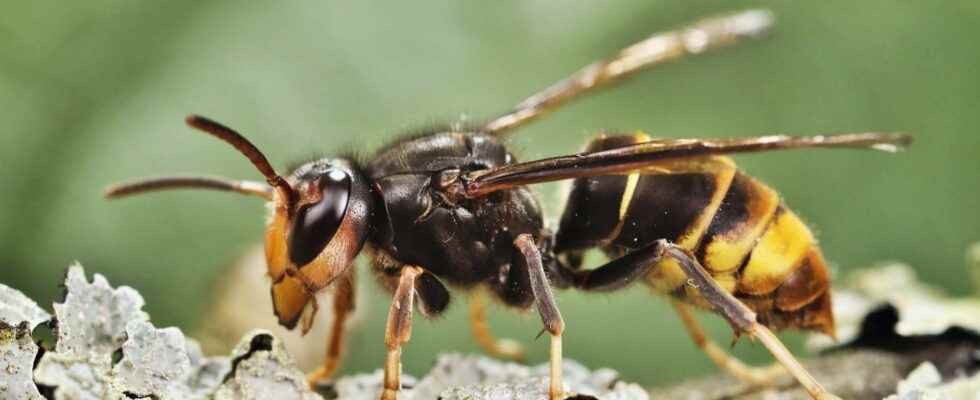Since April 2020, the Asian hornet has colonized all of France. Unfortunately, its subspecies, Vespa velutina nigrithorax, has acclimatized very well in our European countries and wreaks havoc on bees and other pollinating insects. The Asian hornet is considered an invasive species, recognizable by its yellow legs, dark wings, black thorax surrounded by an orange-yellow ring marked with a black triangle.
the asian horneta species from Southeast Asia, has settled in France since 2006. Its presence proves to be a danger both for thebeekeeping only for the balance of the ecosystem. the hornet asian threatens our bees because they are for him a source of food. Foraging bees make up 80% of an Asian hornet’s diet in the city and 45% in the countryside. It only takes five Asian hornets to threaten a hive with extinction. The rest of its diet consists of insects and larvae (caterpillarsbutterflies, flies, spiders).
The Asian hornet, a formidable predator for bees
The Asian hornet in France imbalances the ecosystem. The disappearance of bees foragers would have dramatic consequences on the flora. Indeed, the bees have a role of pollinatorsthey allow, by foraging, the reproduction of most flowers and plants.
the asian hornet is it a threat to humans? Asian hornets generally live far from humans and are not aggressive towards them. In this, we can consider that they are not a threat. However, one must remain vigilant in the event of bites, especially for sensitive people. If you spot a hive of asian hornets, do not destroy it yourself. Report its presence to your municipality, which will take care of having it destroyed.
Interested in what you just read?
